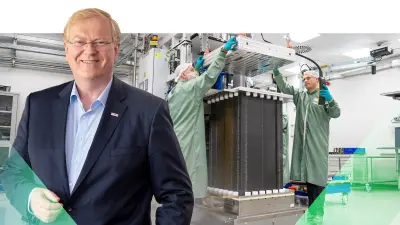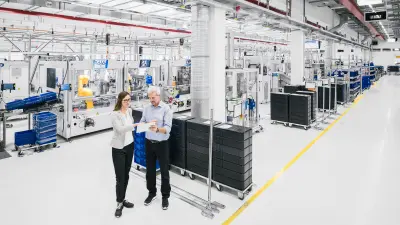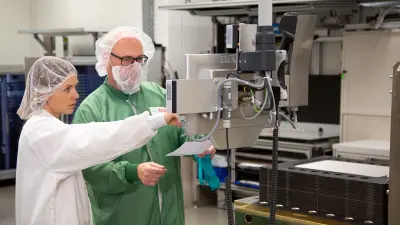West Virginia on our mind

2025-04-08
Mississippi lies in the deep south of the United States. It’s about three times the size of Denmark, with a population of just under three million. Roughly one in five of its inhabitants live below the poverty line, and nowhere else in the U.S. is per capita economic output lower. The striking thing about this fact is that Mississippi is the only state with a lower GDP per capita than Germany. In all other 49 states, it is higher. This comparison doesn’t take account of the difference in purchasing power or the real standard of living. But it does show where Germany and Europe stand in global competition.
by Stefan Hartung
chairman of the board of management of Robert Bosch GmbH
Whether the policies now being made in Washington will extend or reduce the U.S.’s lead is anyone’s guess. What is clear, however, is that we have to catch up — and at the same time put our own stamp on the new realities of business and politics. It looks as though Germany will have to shoulder more political responsibility. To achieve this, however, we’ll need not only considerable resources but also a new affirmation of technological progress. Bold innovations are the basis of a strong economy, and without a strong economy we won’t be able to defend our European values — whether we like it or not.
The foundations for this are in place: as you have seen at Hannover Messe recently, German industry is still very efficient — also compared to the rest of the world. For patents, we are among the world leaders. We have an excellent research scene, we have highly qualified people, and we have the European single market on our doorstep.

And yet frequently, the urgently needed affirmation of technological progress is still held back by two factors: too many regulations and too little confidence. Huge sums are currently being budgeted for in Berlin and Brussels to make up for long overdue investments in security and infrastructure. And that’s good news. But now is also the time to cut back — on all the excessive regulations and reporting obligations that often have little substantive effect but are a sure-fire way of stifling any élan. The same goes for many of the regulations for dealing with new technologies. Regulating everything to do with artificial intelligence before we’ve even properly understood the technology will give us the lowest-risk applications anywhere in the world — but also leave us with no significant share of the value that AI will create.
That’s why the upcoming billion-strong package has to be more than a fleeting feel-good program. It also has to be accompanied by bold reforms — and by spending whose effect does not quickly fade, but instead pays dividends in the long term.
57%
of Germans believe that technology is making the world a better place, the figure in China and India is 88 and 84 percent, respectively.
This includes investments in future-proof technologies, whether AI or robotics, biotechnology or green energy. In this respect, it is worrying that technology skepticism is particularly pronounced in Germany of all places: once a year, our Bosch Tech Compass helps us map out attitudes toward innovative technologies in seven industrialized countries. The survey found that while just 57 percent of Germans believe that technology is making the world a better place, the figure in China and India is 88 and 84 percent, respectively.
Technology is preferable to simply going without
In open debate, in companies and schools, in politics and the media, we should take a stand against this pessimism. This isn’t about uncritically praising every new high-tech solution to the skies. Instead, it’s a question of transparency: new things must be comprehensible, because only understanding protects against prejudice. Anyone who took a look around Hannover Messe quickly realized that seemingly unwieldy terms such as process automation or digital energy are a source of more opportunities than risks. And not just for companies, but also for the environment and our prosperity. Bosch was showcasing a new electrolysis stack that will soon go into full-scale production — in Germany, by the way. This stack can play a major part in the development of a hydrogen-based economy. Technology is preferable to simply going without — also in the fight against climate change.

However, the only way we’ll be able to exploit the huge opportunities that arise from our technological capabilities is if everyone – both in Germany and in Europe – now starts not only disbursing funds, but also focusing on reforms rather than rules. We’ve been moving sideways long enough. Now is the time to move forward. With a clear commitment to technological sovereignty in Europe and with fresh courage – the kind of courage displayed in recent weeks. Courage like this hasn’t been so plainly manifested for a long time. Even so, there’s still a long way to go before we can compare our prosperity with New York’s or California’s. But we might at least soon catch up with Idaho or West Virginia. And that, too, would be welcome.
This article was first published in German in the newspaper Handelsblatt.


